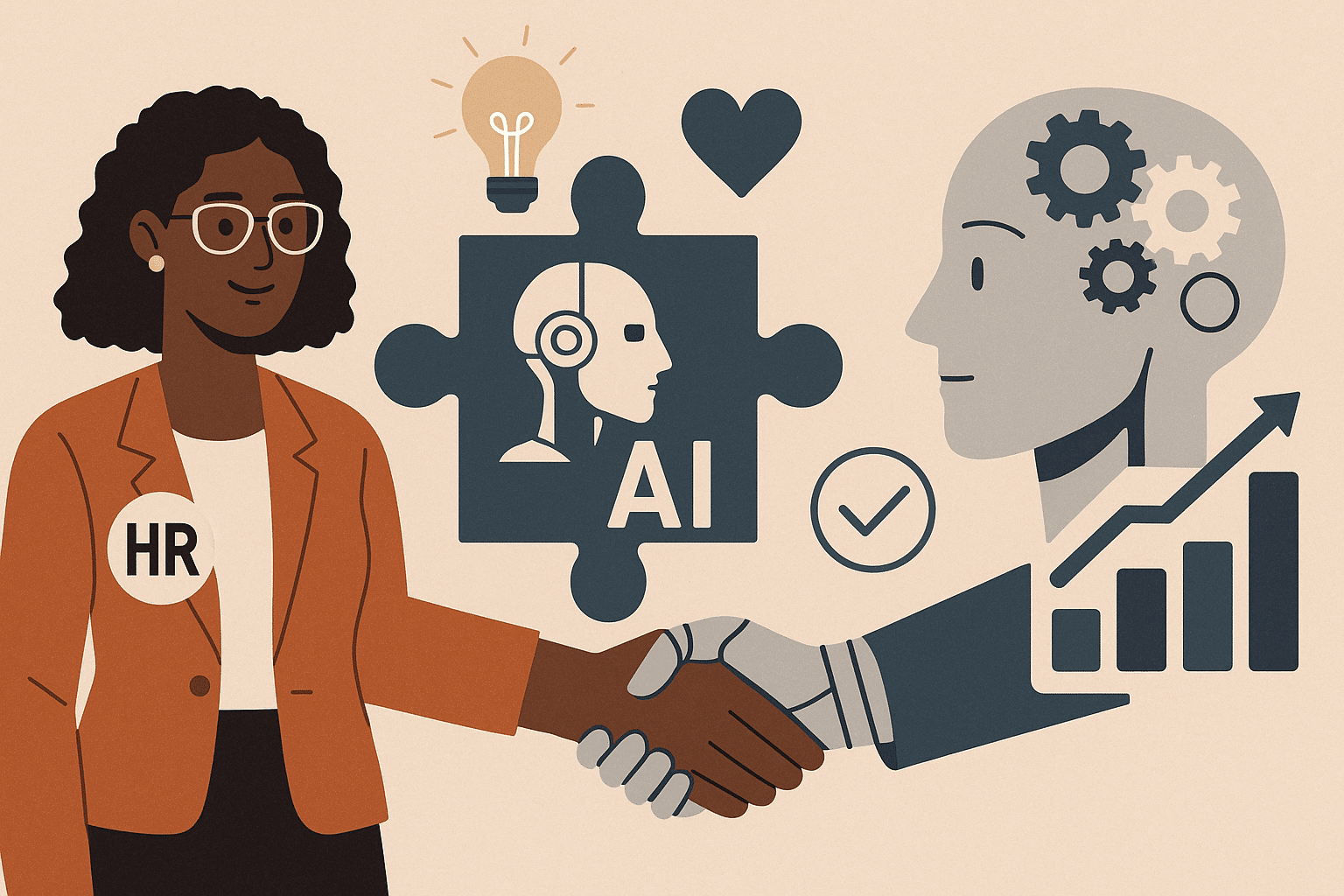Artificial Intelligence (AI) not only disrupts our tools and processes: it also challenges our very conception of leadership. As technologies evolve, expectations toward leaders are profoundly changing. Authority once based on technical mastery is gradually giving way to a more human, ethical, and collaborative leadership.
But what does a leader look like in the age of AI? And how can companies support this transformation?
🧠 From technical expert to augmented leader
In the past, the leader was the one who had the answers. Today, AI can often calculate, anticipate, and analyze better than they can. Authority no longer comes from expertise, but from the ability to ask the right questions, interpret data with perspective, and mobilize collective intelligence.
👉 The leader is no longer the one who “knows,” but the one who “understands and guides.”
According to a Deloitte survey of 1,000 professionals, 87% believe that human skills such as adaptability, leadership, and communication are essential to their career development, and 94% worry that future generations will lack these skills. Reports also indicate that employees want employers to place more emphasis on skills such as collaboration (65%), communication (61%), and leadership (56%) than on technical skills like AI integration (54%).
Source: https://www.deloitte.com/us/en/about/articles/human-skills-lacking-in-tech-driven-world.html
🧭 The return of ethical leadership
One of the greatest challenges linked to AI is automated decision-making. Opaque algorithms, hidden biases, increased surveillance… In this context, leaders are called upon to become the guarantors of ethical and responsible AI.
This implies:
- Understanding possible biases in algorithmic systems
- Demanding regular audits of AI usage
- Promoting transparency in automated decisions
🔍 A leader of tomorrow is one who knows when to say no to AI that goes too far.
💬 Emotional and empathetic leadership: the new priority
AI is efficient, fast… but emotionless. And this is precisely where human leadership takes on its full meaning.
Leaders of tomorrow must:
- Create spaces for dialogue and trust
- Strengthen active listening with teams in transition
- Help manage fears related to automation
The study “Role of Emotional Intelligence in Leadership” conducted by the University of New Hampshire analyzed the impact of emotional qualities (empathy, resilience, curiosity, etc.) on leaders and their organizations. It found that leaders with high emotional intelligence foster greater employee engagement, resolve conflicts more effectively, and improve decision-making. The study concludes that emotional intelligence is essential for leadership success and recommends integrating it into leadership development programs to improve talent retention and organizational culture.
🤝 Toward collaborative and distributed leadership
AI enables faster decision-making, but it can also create silos or dependency. The leader’s role is therefore to foster collaboration among humans… and with machines.
This means:
- Encouraging cross-functional collaboration
- Involving employees in technological choices
- Developing a culture of feedback, including on AI tools
📌 A good leader no longer centralizes power but orchestrates talent.
📈 So what should a leader develop in the age of AI?
| Skill | Why it’s key |
| Critical thinking | To avoid blindly following AI recommendations |
| Digital literacy | To understand technological issues without being a developer |
| Emotional intelligence | To support fears, resistance, doubts |
| Learning mindset | To evolve alongside tools and teams |
| Ethics & responsibility | To ensure AI that is fair, transparent, and respectful |
🧩 Conclusion: leadership more human than ever
Contrary to popular belief, AI does not replace leadership. It redefines it.
It pushes managers to reinvent themselves: less directive, more facilitative. Less expert, more strategic. Less authoritarian, more deeply human.
The leadership of the future will no longer be measured by the ability to decide alone, but by the ability to help others grow in a world where AI is only a tool, never an end in itself.


